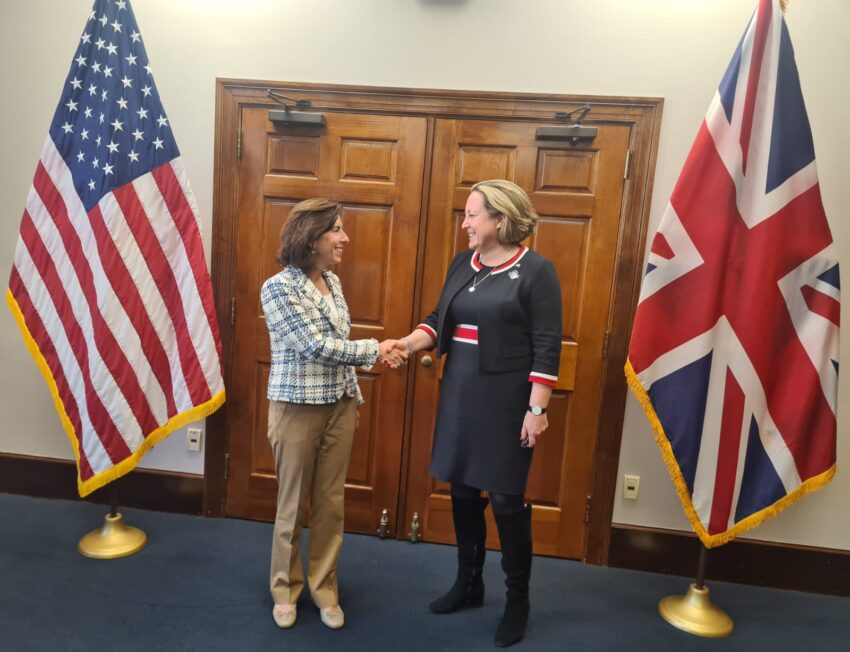The UK is on the brink of agreeing a deal with the US to remove tariffs on British steel exports, ending months of tensions that had stood in the way of a broader bilateral trade agreement.
The UK’s international trade minister, Anne-Marie Trevelyan, is due to meet her counterpart, US commerce secretary Gina Raimondo, on Tuesday evening in Baltimore, Maryland, to discuss the potential deal.
British steel and aluminium companies that export to the US have faced tariffs of 25% and 10% respectively on their goods since 2018 when they were brought in by then president Donald Trump. The UK retaliated with equivalent levies on prominent American products such as Levi’s jeans, bourbon whiskey and Harley Davidson motorbikes.
The US so-called section 232 tariffs were introduced under “national security” concerns and were part of Trump’s broader efforts to put pressure on trading partners.
The UK steel industry reacted with alarm when the US agreed a deal with the EU to remove the Trump-era tariffs on European steel at the end of 2021, leaving British businesses at a disadvantage for months.
Ministers are optimistic that the tariff dispute can be resolved soon, according to a government source. Trevelyan on Monday told the Daily Mail that she hoped the deal would open the way to a broader trade deal before the next election, as the government seeks to show some benefits from Brexit.
A spokeswoman for the Department for International Trade said: “Since announcing the start of formal talks in January, we have made good progress towards agreeing a resolution on steel and aluminium tariffs.
“Our objective remains for the US to lift section 232 tariffs promptly and clear the way for a thriving trading relationship.”
Alasdair McDiarmid, operations director for the steelworkers’ union Community, said: “The news the US steel tariffs are being lifted is welcome, though we need to understand the full detail of the agreement.
“To protect jobs our steelmakers must compete on a level playing field, and it is vital the UK does not suffer a further competitive disadvantage with EU producers. The EU secured their deal with the US back in October, so a UK-US deal is well overdue, and it must be implemented without delay to prevent further damage to our industry.”
Steel companies and other heavy industrial users of large amounts of energy have also repeatedly called for help with energy prices, which were causing problems even before the recent surge in global energy prices – worsened by Russia’s invasion of Ukraine – which is threatening to knock the global economic recovery from the coronavirus pandemic.
However, the Treasury and the chancellor, Rishi Sunak, have previously resisted calls for more support for industry. Sunak is thought to be preparing action aimed at the consumer cost-of-living crisis in Wednesday’s spring statement, which would likely limit the government’s appetite for large-scale support for industry.
McDiarmid said: “Britain’s steel industry is under huge pressure, and steelworkers are looking to the chancellor to take action to cut our unaffordable electricity prices.”


